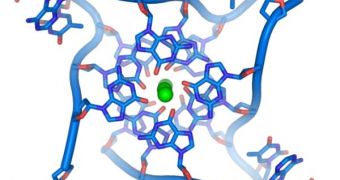It is a well-known fact that childhood abuse, of all sorts, can cause life-long damage to the kid subjected to it, but on Sunday researchers managed to confirm some older theories, which stated that the changes that occurred in the victim actually influenced his or her genes. Once it's changed, the human genome remains like that and cannot be “rolled back” to its previous “setting.” This means that the damage done by the aggressor will indeed cover the victim's entire life span, and may also be transmitted to their children as well.
The team behind the new study used for its research the bodies of people who committed suicide following abuse, helping to prove claims that had thus far remained unproven. The science group, based at the McGill University in Canada and led by investigator Michael Meaney, learned that the brains of these victims exhibited significant changes, as opposed to those of people who suffered no abuse and died in accidents or even suicides.
This line of research only goes to further show the fact that childhood abuse, such as neglect, beating and taking advantage of underage kids, can indeed have some of the most dire consequences, such as depression, other types of mental illnesses, and, in some extreme cases, can cause the victim to commit suicide. Armed with this knowledge, Meaney and colleagues hope that they will be able to develop a line of drugs to counteract these effects someday.
More than 36 bodies were used for the new investigation. Twelve of them belonged to people who had a known history of abuse and who had committed suicide, 12 to individuals who also killed themselves, but had no known history of maltreatment, and the other 12 to persons who died in accidents. The hypothalamic-pituitary-adrenal (HPA) function was the main target of the research, as this is one of the most important stress “pathways” in the body.
Results revealed that genes associated with the good functioning of this pathway had been modified extensively as opposed to those found in the other 24 bodies, which ruled out the possibility of suicide causing these changes. “In humans, childhood abuse alters HPA stress responses and increases the risk of suicide,” Meaney says in the new paper published in a recent edition of the journal Nature Neuroscience.

 14 DAY TRIAL //
14 DAY TRIAL //